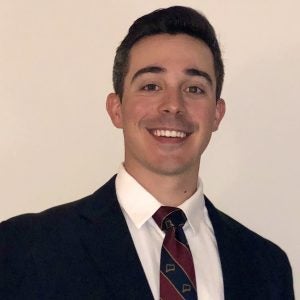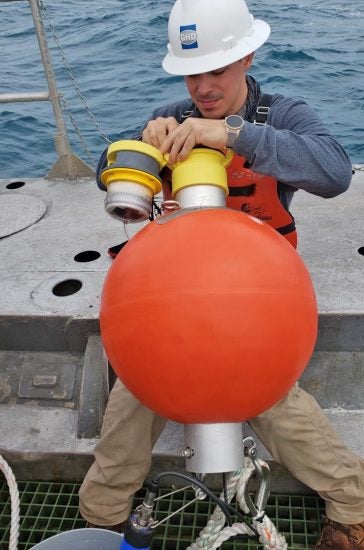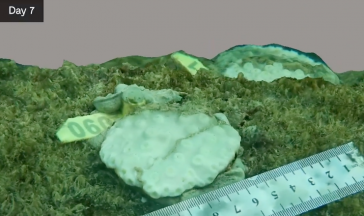
As a coastal engineer, URI alumnus Nicholas Bragaia spends most of his time studying what takes place underwater. Bragaia, who graduated from URI in 2018 with a bachelor’s degree in ocean engineering, works in Florida for the global, employee-owned company GHD.
The Bloomfield, Connecticut native is also pursuing his master’s degree in civil and coastal engineering from Old Dominion University.
Q: What are some of the projects you’ve worked on?
A: For one job, I did numerical modeling of approximately 13 miles of shoreline in Miami-Dade County to model hydrodynamics, waves and sediment transport present in the area.

On another project, I monitored the water quality throughout a port dredging operation. I was heavily involved, from the installation of remote sensors and equipment offshore, to the post-processing and presentation of the data that was collected. The goal was to monitor the turbidity levels (cloudiness of the water) resulting from the dredge to inform turbidity plume modeling efforts in the future, as well as to prevent any threats to the local ecosystem.
Something new that my company is working on is the ability to map and create 3D models of coral reefs in order to monitor and evaluate the health of the reef.
Q: What did you learn at URI that you apply to your job?
A: URI provided a solid foundation in core engineering principles, including how to identify the problem at hand and how to think critically. I also learned how to analyze wave, current, wind and other environmental conditions, which I apply to a broad spectrum of projects.

Q: How do you balance graduate school and working full-time?
A: It has its challenges. Planning my assignments and class projects weeks in advance and dedicating specific nights of the week to my studies has worked well. I’ve learned to be efficient with my time.
Q: What advice do you have for ocean engineering students?
A: Take a diverse set of classes to expose yourself to all aspects of the ocean field. That way you can identify what you really enjoy and pursue that specific area.
